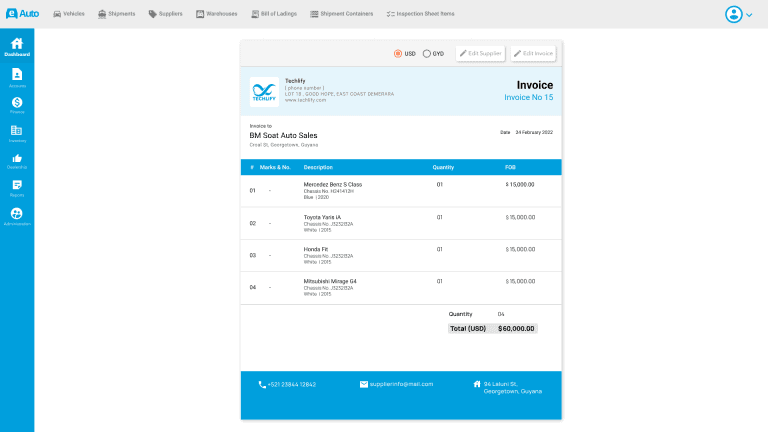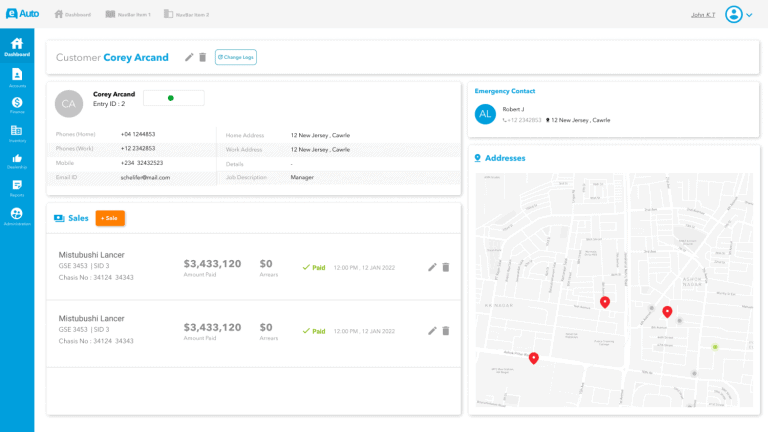Sales Inventory Tracking:
The management was unable to accurately keep track of vehicles from their sales inventory (over a thousand vehicles at any given point in time). This was due to a simple case of damaged, missing or misplaced paper files. This meant that the company in a few cases no longer had a record of the vehicle, its sale, status, customer information etc, which in turn gave way to more financial and record-keeping discrepancies in the future.
Financials Irregularities:
Another major issue the company was battling with was the irregularity in maintaining financial records. This was due to the fact that had to manually manage such a high number of vehicles with varying prices. At the end of the day, balancing the numbers was a herculean task concerning credit, debit, expenses, servicing, parts and more. This also created opportunities for cashiers and others who have direct involvement in the financial transactions to miscalculate or manipulate the financial records.
Excessive Manual Work
As a business that deals with the sale of more than a thousand vehicles in a month, there is a requirement of around 3 to 4 clerks or dedicated resources, just to go through these thousand or so transactional records and confirm their accuracy. Additional to this primary task, they also had to do thorough follow-ups and cross-verification for supporting aspects like insurance validity and expiry, regular monthly payments by the customers, vehicle maintenance and repairs, spare parts inventory and billing.








